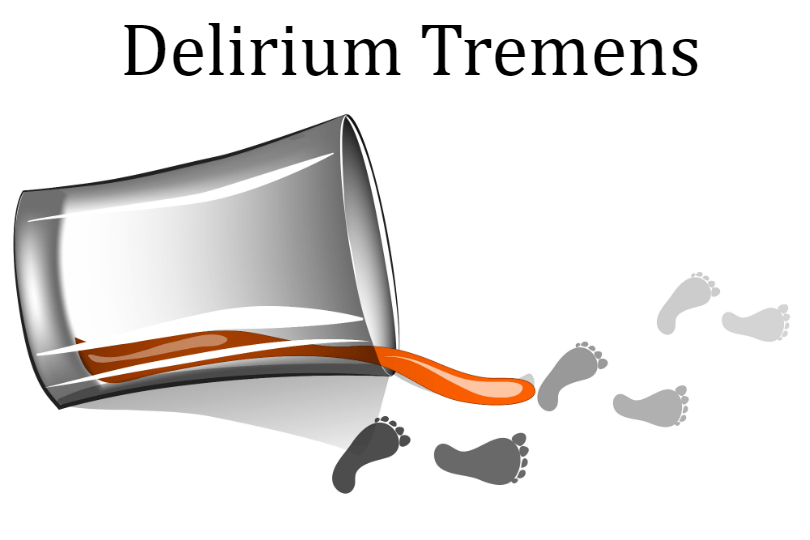Over 14.4 million Americans are currently struggling with alcohol use disorders. Alcoholism can cause many problems ranging from interpersonal stressors to financial strain to medical issues to death.
Many people can benefit from attending a managed detox to stop drinking alcohol. With the right support and tools, treatment and recovery are always possible.
Let’s get into what you need to know!
What Causes Alcohol Withdrawal Symptoms?
Alcohol is a depressant. That means it essentially slows down your brain function. With that, it also changes the way nerves communicate back and forth.
Eventually, your central nervous system gets used to having alcohol around all the time. If you struggle with addiction, your body starts “keeping up” with your intake.
That means it’s working hard to keep your brain in its normal state and keep your nerves communicating efficiently with each other.
What happens then when you stop drinking alcohol? Your brain doesn’t quite receive the message right away. It reacts in a variety of symptoms, ranging from mild to severe discomfort.
What To Expect During Alcohol Withdrawal
If you abuse alcohol and suddenly decide to stop drinking alcohol, you will experience withdrawal symptoms.
Symptoms may happen as quickly as 6 hours after consuming your last drink. When they arise depends on the severity of your alcohol use disorder.
Mild symptoms
The mild symptoms most people will experience during withdrawal include:
- Anxiety.
- Nausea and vomiting.
- Loss of appetite.
- Foggy or disoriented thinking.
- Mood swings.
- Heart palpitations.
These are normal withdrawal symptoms. Even if they are uncomfortable, they are not necessarily life-threatening. These are typically the first set of symptoms people experience, and they may last between 8 hours-1 week after the last drink.
Moderate Symptoms
Moderate symptoms may arise after 24-72 hours of the last drink. They typically peak and taper off within 5-7 days. Such symptoms include:
- Increased body temperature.
- Irregular heartbeat.
- Sweating.
- Mood disturbances or depression.
- Increased blood pressure.
These symptoms often feel physically and emotionally challenging. However, they are not fatal.
Understanding Severe Alcohol Withdrawal Symptoms
Some people will experience severe withdrawal symptoms after they stop drinking alcohol.
These severe symptoms include:
- Hallucinations.
- Seizures.
- High fever.
- Severe confusion or disorientation.
- Agitation.
- Delusions.
All of these symptoms can be extremely dangerous and fatal, especially if left untreated.
For example, someone experiencing intense hallucinations and delusions may become suicidal or dangerous to others. If someone hits his or her head while having a seizure, medical issues could definitely arise.
That’s why professionals recommend monitored detox. When someone decides to stop drinking alcohol, it’s not worth the safety risk to go at it alone.
Even though not everyone experiences the most severe symptoms, it is impossible to know who will (and who will not) have them.
What Are Delirium Tremens?
Delirium tremens (DTs) refer to the psychotic state associated with severe alcohol withdrawal. It may include tremors, hallucinations, disorientation, and high levels of anxiety.
DTs are often coined as “The Shakes,” and they typically occur in individuals who have been drinking heavily for more than 10 years.
Symptoms often begin between 2-4 days after you stop drinking alcohol. However, they can still manifest anywhere between 7-10 days after the last drink.
DTs can last anywhere from 24 hours to up to 5 days. The amount of time they last is highly variable. It is difficult to pinpoint the severity of symptoms a person will experience.
Research is currently exploring the causes of DTs. However, some experts think it has to do with the way the body responds to GABA levels.
Current studies show that 3-5% of individuals undergoing alcohol withdrawal experience DTs.
Without managed care, DTs can be fatal.
How Does Detox Help With Alcohol Withdrawal?
When an individual enters detox for drug or alcohol detox, they receive:
- 24/7 structure.
- Medication monitoring.
- Clinical support.
- Physical relief.
- Positive peer support.
They may also receive specific medication to reduce uncomfortable withdrawal symptoms. Common medications include benzodiazepines, like Valium. Additionally, trained technicians will monitor vitals and assess body temperature, heart rate, and blood pressure levels.
Cravings
Many people struggle with high cravings when they get sober. Trained staff and peer support can help dissuade you from drinking.
After all, detox doesn’t have any alcohol. You can’t get a drink unless you leave the property. As a result, it’s a valuable tool in preventing people from relapsing.
Other Issues
Many patients in detox have co-occurring disorders. These can include:
- Depression.
- Anxiety.
- Eating disorders.
- PTSD.
Trained staff can help patients with support for these conditions.
Many patients may also have physical illnesses like diabetes or high blood pressure. If a person decides to stop drinking alcohol via the cold turkey method (just totally stopping without support), he or she risks medical complications.
How Detox Helps With Long-Term Recovery
Detox provides a wonderful opportunity for individuals to receive the best referrals for alcohol recovery treatment.
Often, detox is the first step in monitored treatment. It provides a basic introduction for what patients can expect when they enter inpatient or outpatient care.
Detox alone is not considered treatment. It does not provide people with the coping skills or support needed for long-term recovery.
However, the initial stabilization is critical. People need to feel safe and supported when they detox. This may actually encourage more people to enter treatment for their alcohol problems.
Final Thoughts on What to Expect When You Stop Drinking Alcohol
The decision to get sober may be one of the most important (and most challenging) decisions you ever make. However, a life entrenched with alcoholism is a life that’s typically laden with pain, fear, and sickness.
You owe it to yourself to receive the help and support you need during this trying journey.
Ready to seek out treatment for your struggles with alcohol? We’re here for you! Browse our addiction treatment facilities by state.


















